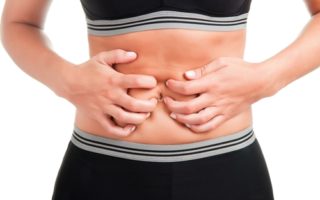
Ulcerative colitis is a chronic inflammatory bowel disease that results in long-term inflammation and ulcers in the digestive track. The disease affects the lining of the large intestine and rectum. Like Crohn's disease, another type of IBD, ulcerative colitis has no known cure, though diet and medication have been shown to significantly reduce certain symptoms. Some treatment plans have even resulted in long-term remission.
What is living with ulcerative colitis like?
A report from the Crohn's & Colitis Foundation of American found 1.6 million Americans suffer from IBD with as many as 70,000 new cases every year. The precise cause of IBD is not known, though most physicians and scientists believe it to involve the interaction between the immune system, environmental factors and genetics. Ulcerative colitis is a distinctive form of IBD because inflammation primary occurs in the innermost layer of the intestine lining, though can spread to the entire colon.
The disease's symptoms vary depending on the severity of inflammation and where it occurs in the body. Most people with ulcerative colitis experience symptoms that may include: rectal pain, diarrhea (often bloody), abdominal pain and cramping, urgency to defecate, rectal bleeding, weight loss, fever and fatigue. There are different types of ulcerative colitis depending on how much of the colon the disease affects. Children who develop ulcerative colitis are more likely to have severe symptoms as they age.
"Changes in diet can help mitigate the disease's symptoms."
GAPS Diet and ulcerative colitis
In her book, "Gut and Psychology Syndrome," Dr. Natasha Campbell-McBride writes that more research is emerging linking ulcerative colitis with opportunistic gut flora getting out of control. This overactive gut flora gets access to the gut wall, damaging its integrity, which results in leaky gut syndrome. The GAPS Diet centers around treating and healing leaky guts by cutting out detrimental foods and products.
Many physicians and nutritionists agree that changes in diet can help mitigate the disease's symptoms. During colitis flare ups, affected individuals should avoid consuming fatty foods, caffeine and alcohol. They should drink plenty of fluids and speak with their doctor about limiting their fiber intake. Some individuals with ulcerative colitis have found some relief from their symptoms by taking probiotic supplements.
While there are many probiotic products on the market, Campbell-McBride writes that many of these products are not strong enough or not contain enough beneficial bacteria to be beneficial. She recommends speaking with a qualified practitioner to choose high quality supplements. Additionally, on the GAPS Diet, participants eat probiotic-rich foods that naturally restore the balance of microflora in the gut.
For additional information about the GAPS Diet and how to get started, you can consult with a Certified GAPS Practitioner and visit our website today!

